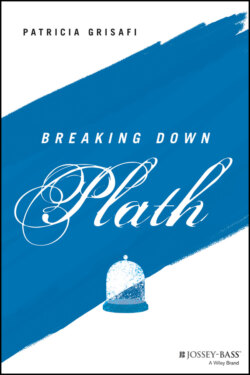Читать книгу Breaking Down Plath - Patricia Grisafi - Страница 6
Foreword
ОглавлениеIn “Context,” a short work of prose published in The London Magazine in February 1962, Sylvia Plath discusses how the issues of her time impact on her writing. It concludes eloquently:
Surely the great use of poetry is its pleasure—not its influence as religious or political propaganda. Certain poems and lines of poetry seem as solid and miraculous to me as church altars or the coronation of queens must seem to people who revere quite different images. I am not worried that poems reach relatively few people. As it is, they go surprisingly far—among strangers, around the world, even. Farther than the words of a classroom teacher or the prescriptions of a doctor; if they are lucky, farther than a lifetime.
Sylvia Plath endures. She holds our attention, and as a result, people all over the world think about her, recite her poetry, and write articles, essays, and books about her. Her novel The Bell Jar (1963) has been translated into more than thirty‐five languages, including Braille. Yet, fifty‐eight years after her death, we find we still have much to learn about Plath the person and Plath the writer.
The recent publication of the more than 1,400 letters Plath composed helps to fuel our interest in her. When combined with her poetry, prose, and other life writing, an astoundingly prolific and diverse person develops who defies singular classification. Plath's output in various genres of writing and media of expression make her an endlessly fascinating area of study.
Patricia Grisafi's Breaking Down Plath is up to the moment. It blends historical and contemporary readings of Sylvia Plath—the major themes in her poetry and important aspects of her prose—in such a way that you, her newest readers, will understand and relate to the mid‐twentieth century's most famous writer.
Peter K. Steinberg, co‐editor of The Letters of Sylvia Plath 11 February 2021
